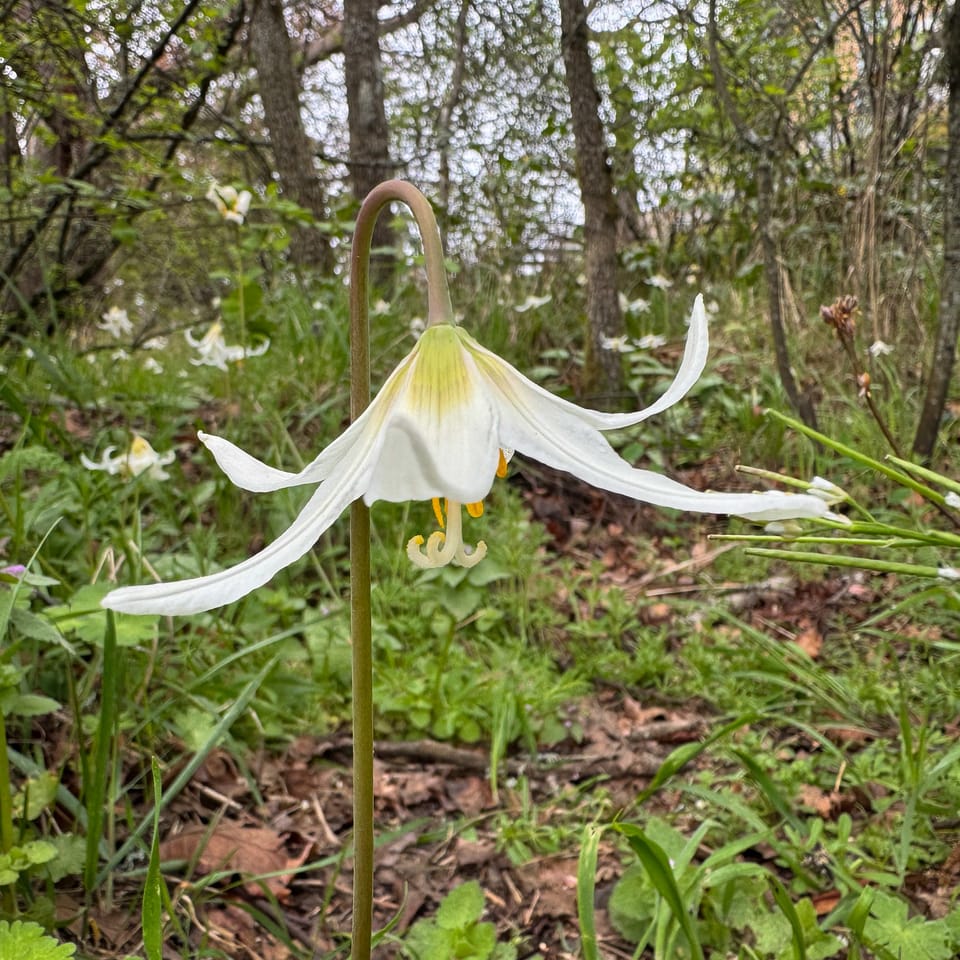EcoWest News, April 1, 2025

Welcome to EcoWest News, a weekly round-up of news and resources that you can put to use in addressing environmental issues and protecting the wild in your community.
Across the West
A new educational program from CPAWS Manitoba introduced 629 K-6 students to the beauty and importance of polar bears and the Arctic ecosystem. [CPAWS Manitoba]
A stretch of forest along Winnipeg’s Seine River may be saved by a developer who plans to retain green space. Save Our Seine, a local advocacy group, has lobbied to protect the Sumka Forest for over a decade. [CBC]
Residents and nearby First Nations continue to oppose the Three Sisters Mountain Village development in Canmore. The project would double Canmore’s population and block wildlife movement. [The Narwhal]
An Alberta government plan would wipe out two southern mountain caribou populations by clearcutting their last winter range and increasing oil and gas exploration. [CPAWS Northern Alberta]
Communities along BC’s North Coast are opposed to oil tankers off their shores, fearing the negative effects of a spill on the ecology and fisheries. [DeSmog]
Across Canada
Industrial carbon pricing assists industry to recoup the high costs of emissions-reducing projects such as decarbonization at steel plants and pulp mills and renewable energy projects in Alberta. [The Energy Mix]
Protected areas, such as national parks, Indigenous Protected and Conserved Areas, and marine protected areas, make nature more resilient to climate change as they provide refuges for wildlife and give endangered species a chance to recover. They also store more carbon and take more CO2 out of the atmosphere than unprotected areas. [CPAWS]
Around the World
Exposure to artificial light at night can severely disrupt monarch butterflies’ navigation system resulting in disoriented and inconsistent flight behaviour. [Dark Sky International]
Using geothermal heat from abandoned oil and gas wells to improve compressed-air energy storage systems could boost efficiency, reduce environmental risks, and support clean energy and job transitions. [Planetizen]
Scrubbers were designed to reduce air pollution from ships, but the pollution is dumped in the water instead, causing significant environmental damage and delaying the transition to low-sulphur fuel. [Dialogue Earth]
Reporting Back
Grasslands Considered: Regulatory Consideration and Protection of Alberta’s Native Grasslands assesses decisions that impact native grasslands made by Alberta’s regulatory tribunals and looks at whether or not they consider native grasslands and their protection in decision-making. [Environmental Law Centre]
Preparing Alberta’s Buildings for Severe Weather emphasizes the need for deep retrofits to ensure the province’s buildings can withstand changing conditions. [Pembina Institute]
On the Screen
tmixʷ: A Holistic Commitment to Our Forests, created in collaboration with Ntityix Resources LP and filmed on the traditional lands of the Syilx Okanagan people will be released April 9. The documentary highlights Indigenous leadership in sustainable forestry, wildfire mitigation, and environmental stewardship. [YouTube]
Dancing with Cranes, a documentary about the people who are working to rebuild whooping crane populations, is now available on CBC Gem. [CBC]
Making a Difference
Salish Soils on BC’s Sunshine Coast is transforming food waste, biosolids, and wood waste into soil, compost, mulch, and aggregate. [Salish Soils]
People wanting a greener funeral can now take advantage of a bicycle hearse in Paris and the UK. [Momentum]
Using technology to control when streetlights turn on and off or dim can save energy and limit disruptions to local ecosystems and human circadian rhythms. [Planetizen]
DIY
Studies demonstrate that climate activism shifts public opinion and media coverage in a pro-climate direction. [Science Direct]
Bird sits are a great way to bond with other birders, include people with mobility challenges, and have fun. [Audubon]
Photo credit: https://www.flickr.com/photos/apmckinlay/53659360186
EcoFriendly West informs and encourages initiatives that support Western Canada’s natural environment through its online publication and the Nature Companion website/app. Like us on Facebook, follow us on BlueSky, X, and Mastodon, or subscribe by email.

Member discussion